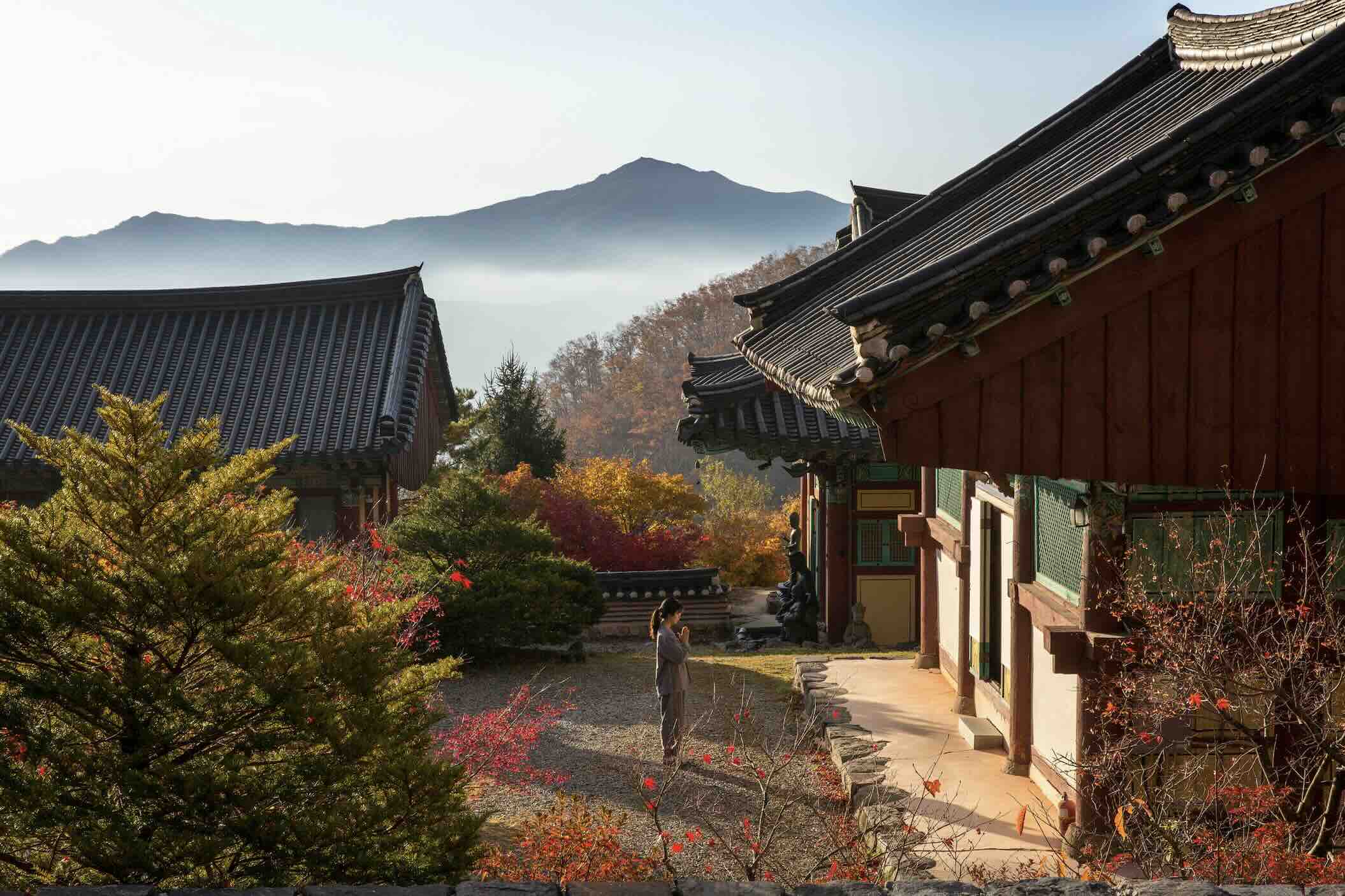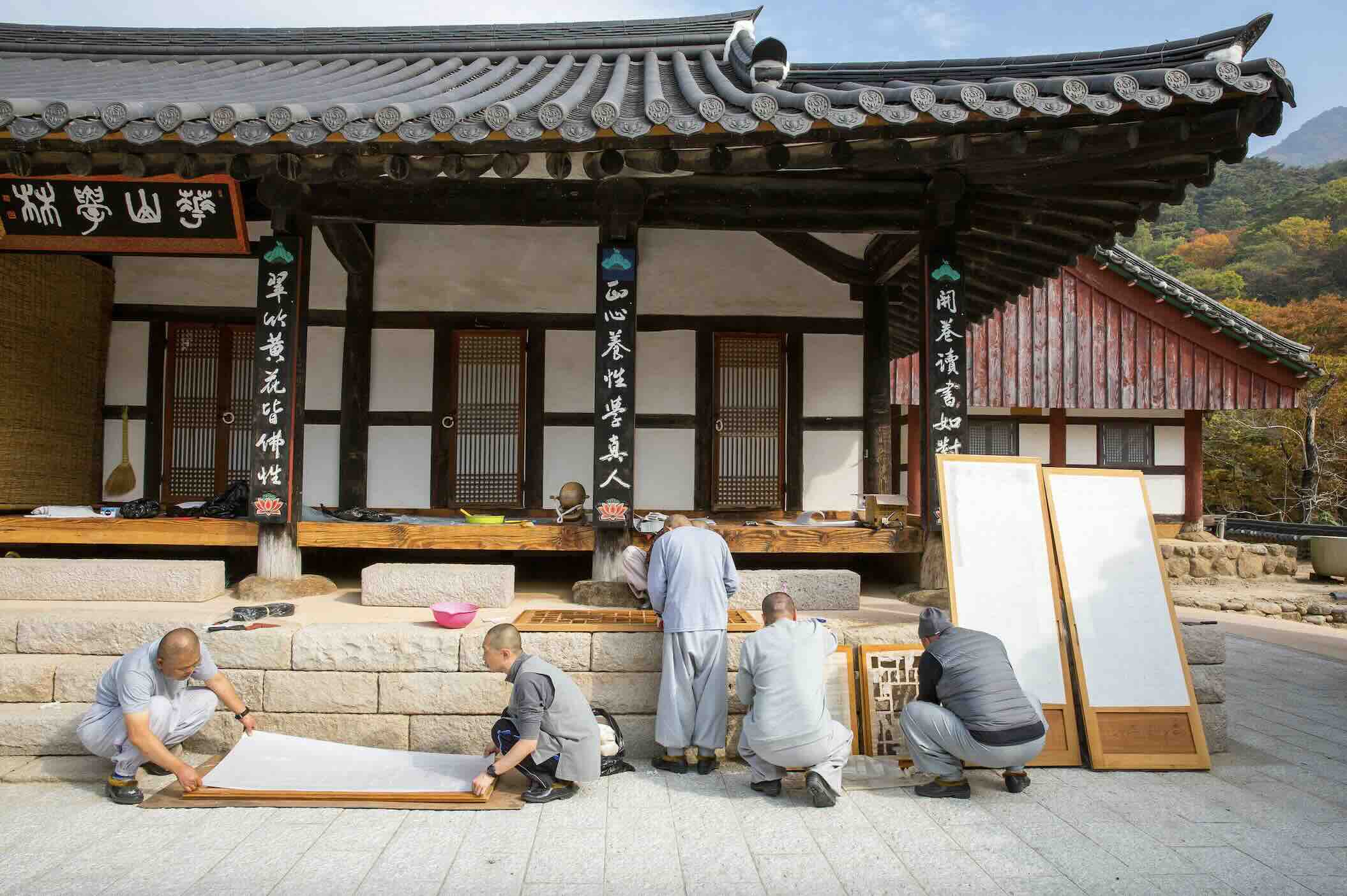As part of the much-anticipated 2023-2024 Visit Korea period, Templestay is thrilled to announce the continuation of its immersive program under the name “Special Templestay,” specifically tailored for English-speaking foreigners. This unique opportunity invites you to engage with Korea’s rich 1700-year-old Buddhist tradition at major temples, providing a firsthand experience of the past in the present moment.
Anguksa Temple, Muju, Jeollabuk-do – A Gateway to Korea’s Living Buddhist Tradition
Temples serve as living embodiments of Korea’s ancient Buddhist heritage, offering you a profound connection to history and tradition. Templestay goes beyond the conventional tourist experience, allowing you to stay within these sacred spaces, immersing yourself in the daily lives, rituals, and practices of the resident monks.
Monasteries are not mere relics of the past; they are vibrant communities where monks continue to live, eat, sleep, and practice, upholding traditions that have endured for centuries. Through Templestay, you gain a unique insight into the dynamic and evolving nature of Korean Buddhism.
Preserving Tradition in the Modern Age
Despite the passage of time, the traditions of Korean Buddhism have persevered. Monks, as custodians of this cultural heritage, actively maintain and operate temples, engaging with the public to ensure the continuity of these ancient practices. A Templestay offers you a rare opportunity to experience the lives of monks, spanning from the distant past to the present day.
A Day in the Temple: A Journey Through Rituals and Reflection
A typical day in a temple is a vibrant tapestry of rituals and activities. The day begins with the resonating sound of the wooden handbell (Monk-tak) during the “Doryangseok” ritual at 3 to 4 a.m. Monks then proceed with the early morning “Yebul (Buddhist ceremony),” committing to follow the path to enlightenment as prescribed by Buddha. “Yebul” occurs three times daily, interspersed with temple upkeep activities (“Ulreok”) and designated roles for you.
At Templestay, you spend one night and two days at the temple, immersing yourself in activities mirroring the monks’ routines. From joining the “Yebul” ceremony to practicing “108 bae (108 prostrations)” and “Chamseon” meditation, you delve into the essence of Korean Buddhism. Additionally, you engage in the craft of making “yeomju,” Buddhist prayer beads, and share enlightening conversations with monks over tea, gaining insights into the practitioners’ mindset and finding moments for mental healing.
Temple Cuisine: A Culinary Journey Through Tradition and Mindfulness
Temple food offers you a distinctive culinary experience, prepared healthily without chemical additives and using ingredients sourced from nature. Reflecting a dietary culture that has sustained practitioners’ physical health throughout history, temple cuisine imparts the values of gratitude and moderation.
In the act of consuming temple food, you learn to appreciate the simplicity of “gratitude for everything” and practice the principle of moderation—consuming only what your body needs. The act of eating becomes a meditative experience, where you observe and acknowledge your body’s state with full concentration.
Choose Templestay for an Unforgettable Korean Experience
In the context of Korea’s rich past and vibrant present, Templestay stands out as a unique program for you, seeking immersion in Korean Buddhism. It provides a rare opportunity to feel the essence of this ancient tradition while exploring the cultural and spiritual landscape of Korea.
For more information on Templestay and to make a reservation for this exceptional program, please visit the Templestay English website.








